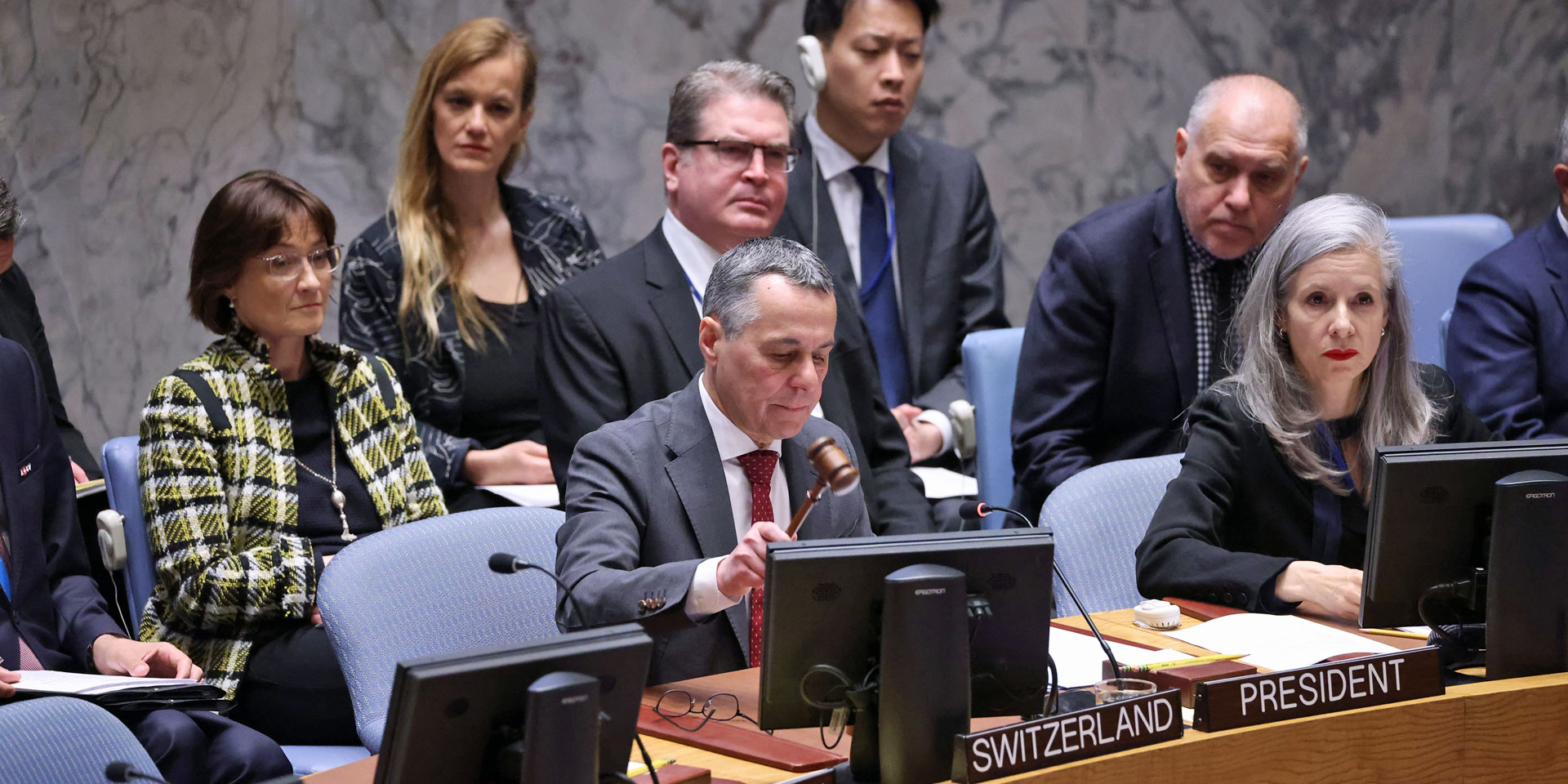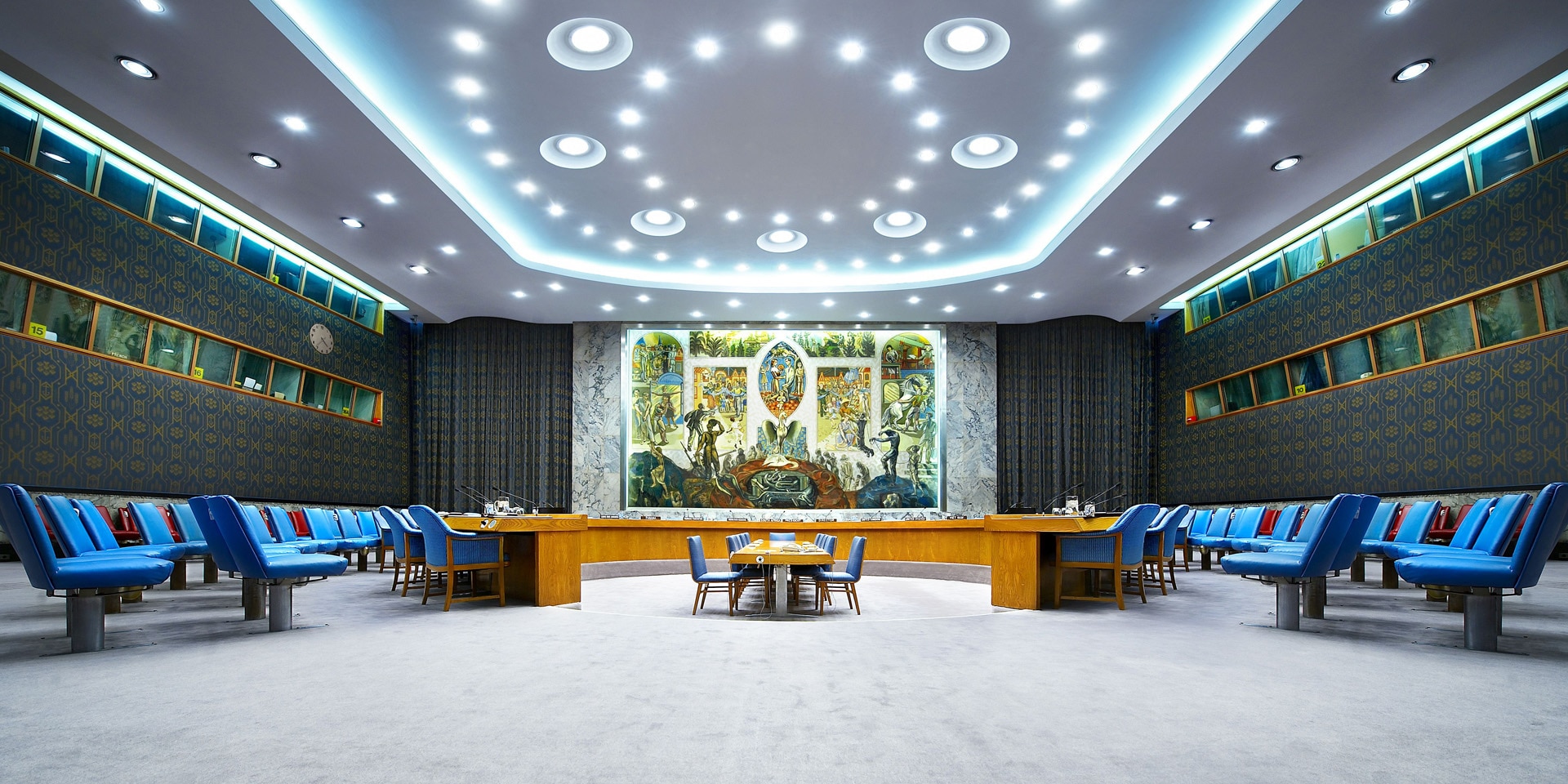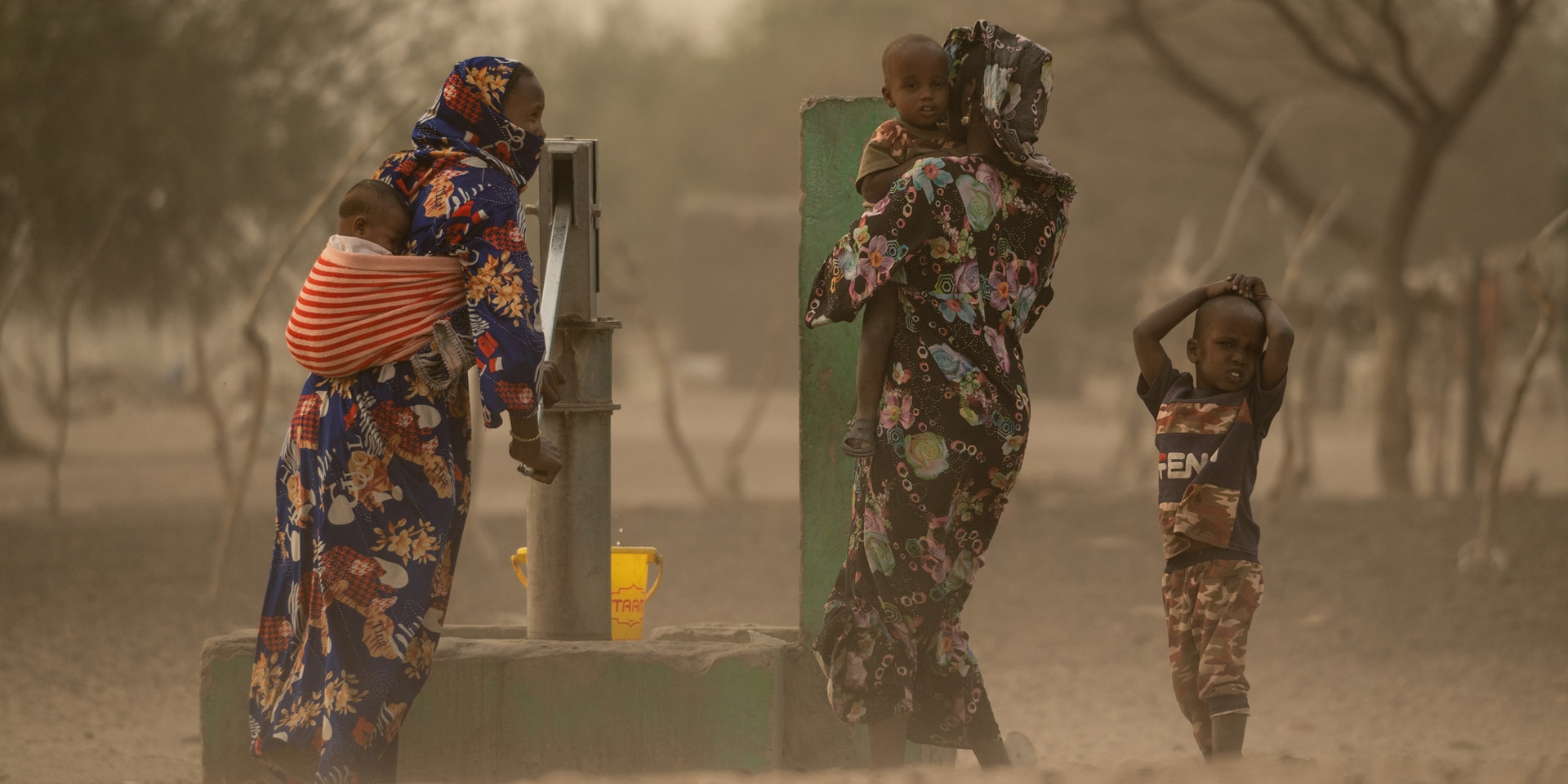Why the consequences of climate change can exacerbate conflicts
The impact of climate change on food security and international security is at the center of an open debate at the UN Security Council today. The Federal Council has defined "addressing climate security" as one of four priorities for Switzerland's membership of the Council. Burkina Faso will be used as an example to show how climate change, access to food and security are linked. Switzerland is addressing this issue at the bilateral and multilateral levels.
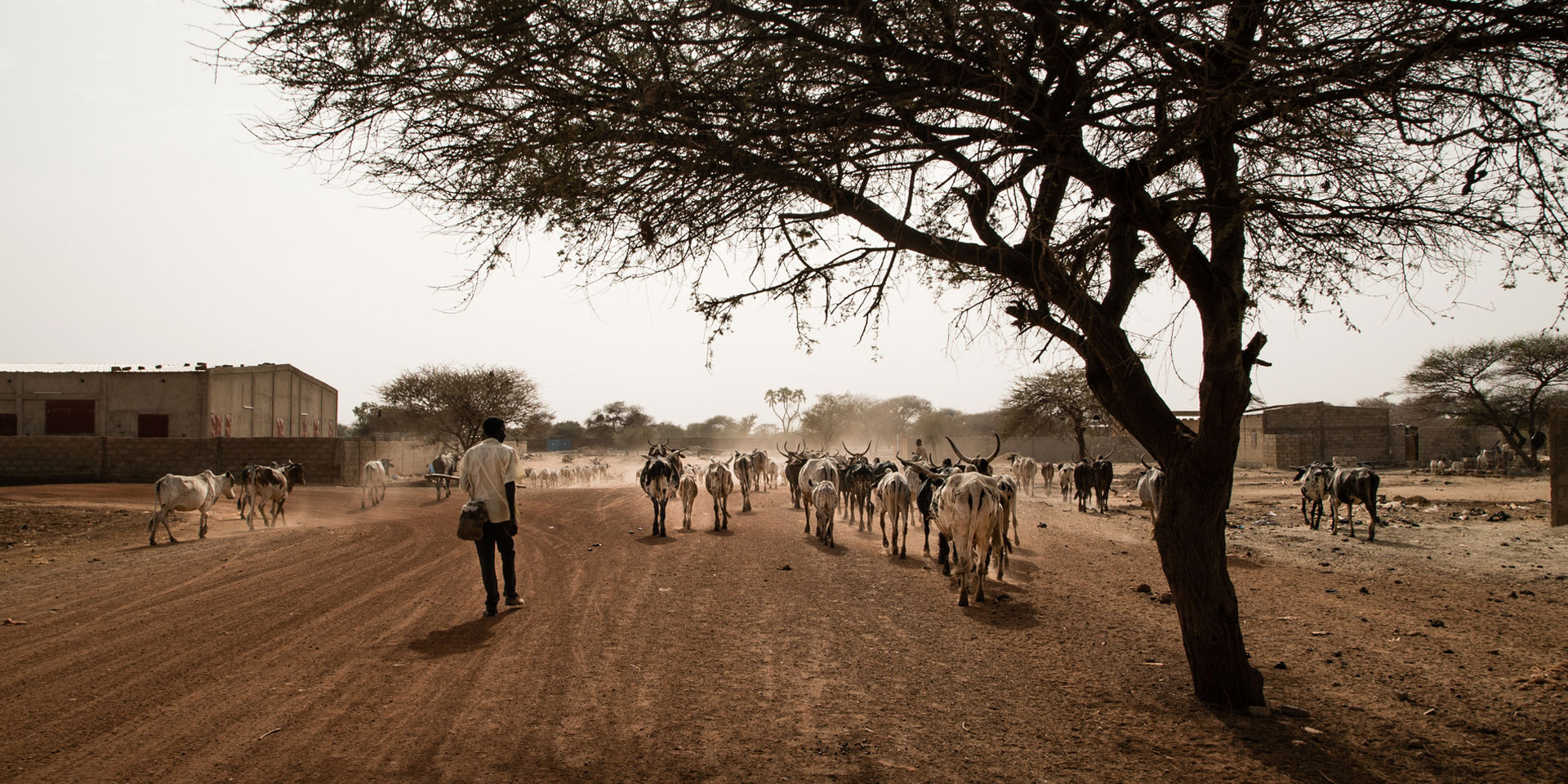
Cattle-breeding nomads leave the conflict-affected north and east of Burkina Faso due to a shortage of fodder caused by climate change. © Keystone
Food insecurity and malnutrition are at alarming levels in Burkina Faso. Some 3.3 million people are in need of vital humanitarian assistance. An armed conflict is raging in the country. Radical Islamist attacks in the north and east of the Sahel country have resulted in numerous civilian deaths and injuries, burning villages and destroyed fields. The government of Burkina Faso has responded with military force. The conflict is making it increasingly difficult for civilians to access fields and markets, exacerbating an already precarious food security situation. Burkina Faso is also suffering from the effects of climate change, characterized by an increase in the frequency and intensity of droughts and floods. These limit the routes nomads can take with their livestock. This makes livestock trade and grazing more difficult, often leading to further violent conflicts between sedentary farmers and nomads. This creates a vicious circle in which the effects of climate change and conflict reinforce each other. It is the civilian population that suffers most.
Within the framework of its international cooperation, Switzerland carries out numerous bilateral projects to strengthen the resilience of societies to extreme weather and climate events - also in conflict regions such as Burkina Faso. Due to the consequences of climate change, the cattle-breeding nomads, most of whom come from the conflict regions in the north of the country, are facing a shortage of fodder. This leads to a strong migration of nomads to the south of the country, which is characterized by sedentary agriculture. This migration leads to conflicts that undermine the social cohesion of communities and create new tensions.
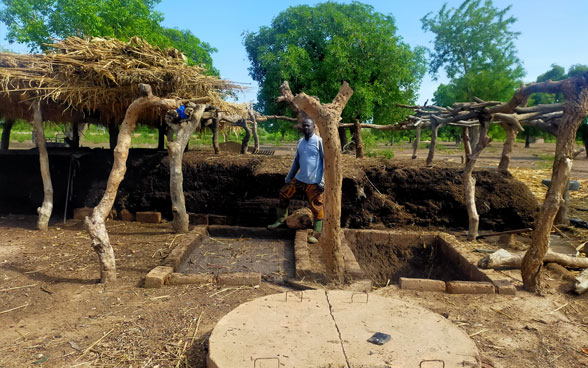
On the ground, the Swiss Agency for Development and Cooperation (SDC), together with government organisations, local livestock associations and the private sector, is pursuing a holistic project approach to tackle this problem. As a result, pastoral nomads from the north have better access to grazing land in the south of the country and to food aid in insecure regions of Burkina Faso. This reduces their vulnerability to climate and security crises. The project also creates jobs in meat and milk production for sedentary women and young people. This creates prospects, improves their incomes, and reduces tensions between communities. To date, more than 200,000 people have benefited from the project.
Findings from international cooperation applied in multilateral bodies
Switzerland brings this practical experience from the field and the knowledge gained from it to the multilateral stage. For example, in the UN Security Council, of which it is a member until the end of 2024. "Addressing climate security" is one of the four thematic priorities defined by the Federal Council for Switzerland's membership of the Council. So far, Switzerland has been able to set various priorities in this area. For example, during the negotiations on the renewal of mandates for UN missions, Switzerland successfully argued for greater consideration to be given to the security risks associated with the negative consequences of climate change in the resolution texts adopted. These include the missions in South Sudan (UNMISS), Iraq (UNAMI), Haiti (BINUH), Libya (UNSMIL) and Somalia (UNSOM). This year, Switzerland will continue to address the security and peace policy implications of climate change, identify possible solutions and contribute to consensus-building among Council members. With regard to Burkina Faso, Switzerland is also making a concrete contribution at the multilateral level through its role as penholder in the Security Council for the UN Office for West Africa and the Sahel (UNOWAS), where it is contributing its expertise on climate security. As the UN Security Council's co-focal point on food security in armed conflicts, Switzerland also closely monitors the situation and ensures that existing early warning instruments are used to prevent hunger crises. In addition, Switzerland co-chairs the Informal Group of Experts on Climate and Security and works to ensure that scientific findings are incorporated into the Security Council's deliberations and actions.
Climate security: a priority of Swiss foreign policy
The Foreign Policy Strategy 2024-2027 attaches great importance to the link between climate change and the risks to peace and security. Rising temperatures, droughts and floods can jeopardize the livelihoods and food security of societies and intensify competition for vital resources in already fragile contexts. Climate change thus acts as a risk multiplier, exacerbating existing political, social and economic stresses and potentially leading to tensions and conflicts. Switzerland therefore works at the bilateral and multilateral levels to mitigate the impact of climate change on peace and security.

